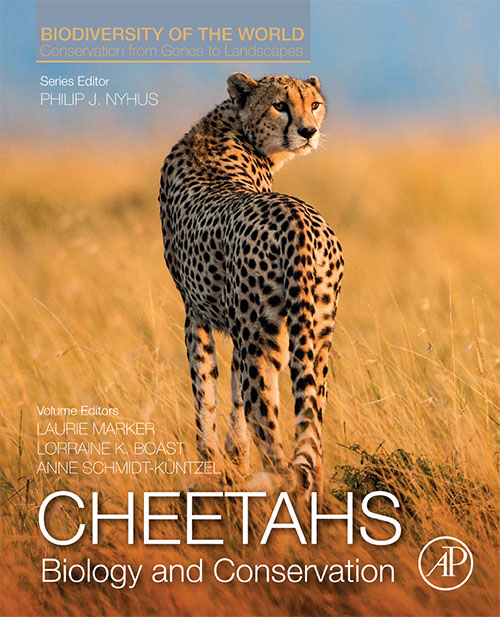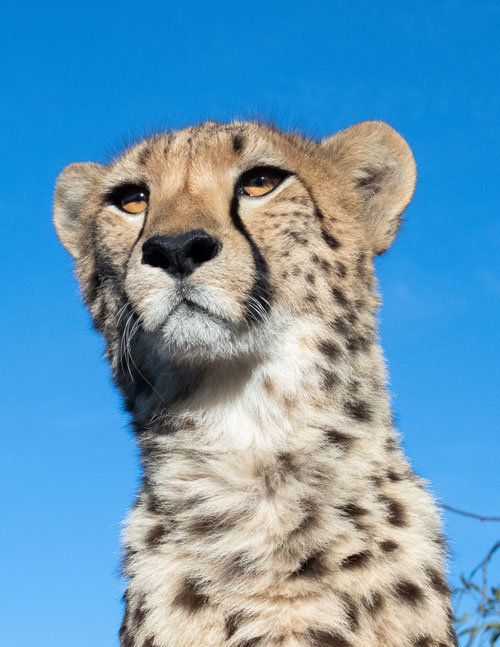Global Cheetah Summit – A Call To Action As Species’ Decline Approaches “Point Of No-Return”
-

- by CCF Staff January 16, 2024
FOR IMMEDIATE RELEASE
OTJIWARONGO, Namibia; Addis Ababa, Ethiopia; Alexandria, VA, USA; London, UK, [16 January 2024] – The first Global Cheetah Summit –A Call to Action, convenes 28th – 31st January 2024 in Addis Ababa, Ethiopia. The Summit brings together a diverse group of international stakeholders representing governments, universities, NGOs, policy and economy institutes, local and Indigenous communities, and private enterprise from around the world to discuss and act-on the plight of the fastest land animal and the most endangered of the big cats.
CCF’s Founder and Executive Director, Professor Laurie Marker, former A.D. White Professor-at-Large at Cornell University and convener of the Global Cheetah Summit states the case: “In the past century, cheetah have been reduced to only 9% of their original range. Today, there are less than 7,500 adult and adolescent cheetahs living in 31 populations in 23 countries of Africa, and fewer than 25 – the last of the Asiatic cheetahs – in Iran. Over two thirds of these remaining populations consist of less than 100 individuals, and 80% of the remaining wild cheetah live outside of formally protected areas. We estimate it is possibly five years before the point of no-return to maintain a viable wild cheetah population in many areas of its range. Cheetahs continue to be threatened by loss of habitat and fragmentation, human-wildlife conflict and poaching and illegal wildlife pet trade. Although humans are the principal cause for the ecosystem’s imbalance, humans are also the solution.”
“The Royal Commission for AlUla is proud to support the Cheetah Conservation Fund in their broader efforts for the conservation of cheetah in the wild” Stated Dr Stephen Browne, Wildlife & Natural Heritage Vice President at the Royal Commission for AlUla. “As part of our collaboration, RCU’s sponsorship of the Global Cheetah Summit is a critical milestone which will convene leading experts to develop a strategy to address key threats facing the species.”
Each of these threats are being compounded further by climate change, human population growth and poverty and present climate change solutions are needed to ensure the cheetah’s survival for future generations. In addition, many farming and grazing practices are responsible for habitat transformation and degradation, accelerating desertification and negatively impacting wildlife populations. Finally, human-wildlife conflict reduces the cheetah population in the wild, either through direct persecution or via illegal wildlife trade. The Cheetah is the Icon for Arid Landscapes and the threats facing their survival are multi-faceted and often interlinked.
Professor Amy Dickman, Director of Oxford University’s Wildlife Conservation and Research Unit (WildCRU), and one of the conservation partners of the Summit states that, ‘Successful conservation needs to be as much about people as it is about wildlife. Maintaining large predators has real costs for the countries and communities who live closest to them, and the only way wildlife will persist is if the benefits of conservation clearly outweigh those costs. This will need innovative thinking, significant financing, and most importantly, real partnerships between international agencies and local stakeholders. This Summit will help build and strengthen those partnerships, paving a way for a more positive future for cheetahs, wider biodiversity, and people.’
CCF and its partners will bring together a dynamic group of stakeholders to tackle these threats and confront some hard questions about how to best secure the cheetah’s future. Participants will examine the state of the cheetah, ongoing conservation activities, financial needs, and opportunities, and what additional tools are available to safeguard the cheetah. Advocates for the global community of cheetah conservationists are seeking to identify the swiftest actions necessary for securing viable cheetah populations into the future. Conservation practitioners understand the threats facing the cheetah, but now is the time to implement more of the solutions in the cheetah’s current range and to develop new habitats for this iconic big cat, which lives in low density and requires vast home range territories. Participants in the Summit will identify and discuss the required steps needed in the next two to five years to combat the most significant threats facing the cheetah.
Mr. Kumara Wakjira, the Director General of Ethiopia Wildlife Conservation Authority (EWCA), and country host for the Summit, expresses that, “Cheetahs face serious challenges across Ethiopia and throughout their remaining ranges. The principal threats include habitat loss, decline in prey base, illegal trade, conflicts with the local community, and impacts of climate change. Hence, we are proud to convene other range states and cheetah stakeholders in Ethiopia to work towards a cooperative plan to save the iconic cheetah from extinction! A balanced approach to cheetah conservation is needed, considering both human development and wildlife conservation.”
The Global Cheetah Summit will be an important milestone for the species and for developing partnerships and establishing new voices in cheetah conservation. Cheetahs are important apex predators in African and Asian landscapes that are already facing the impact of climate change. Apex predators are key to the resilience of ecosystems. The conservation of apex predators in an environment creates a cascading effect down to primary producers. In an age where climate change is destabilizing landscapes more than ever, we cannot afford to lose a single species, let alone the cheetah – an iconic species for the arid landscapes.
Keynote speaker for the Summit is Vance Martin, President Emeritus, Wilderness Foundation Global (WFG) and Trustee of the Cheetah Conservation Fund states “Healthy predators create healthy ecosystems that sequester significant carbon…a win for people, climate, and animals. Protecting the cheetah is a direct method to combatting climate change…a nature-based solution that benefits all life.”
Robert Muri, NEOM’s ReWildling Lead and Conservation Specialist welcomes delegates to the Global Cheetah Summit and says “NEOM is pleased to be the Gold Sponsor of this first Global Cheetah Summit which will bring together stakeholders to map a plan for the cheetahs future.”
CCF’s Prof. Marker stresses the urgency for a Global Call to Action, urging for more awareness and active engagement in cheetah conservation by not only the governments where cheetahs still range but from local and international NGOs development institutions, and businesses. “The overarching challenges of climate change, especially in dryland ecosystems, highlight the need for integrated conservation strategies. Our collective efforts are crucial for cheetah survival. The results of conservation programs in some countries where cheetah remain are impressive, but these programs need to be scaled up and expanded into other cheetah range countries. So much more needs to be done, and if we don’t “get it right” now there will not be cheetahs for the next generation to see.”
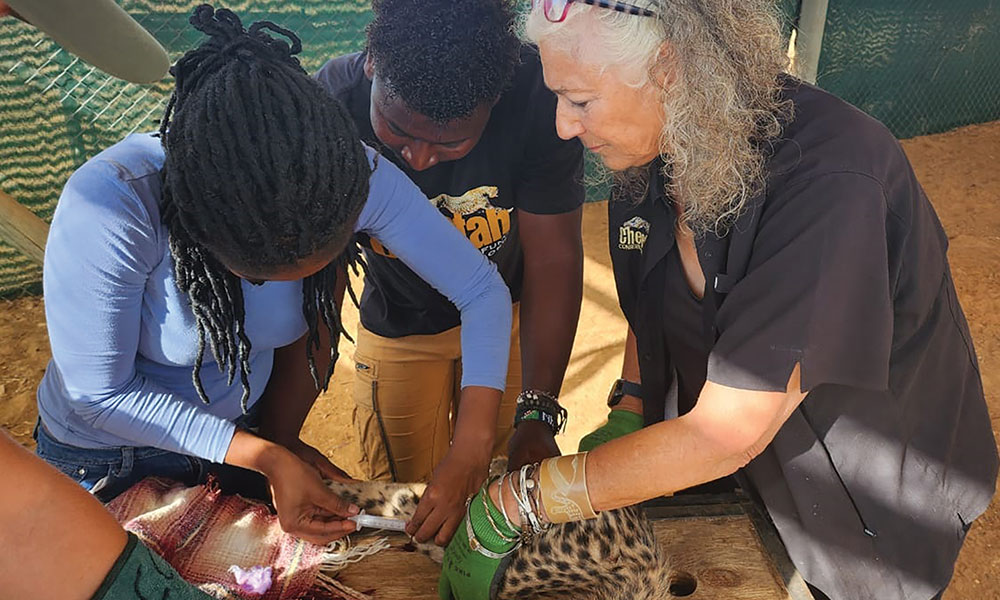
Captions: Above photo: Prof. Laurie Marker – Founder and Executive Director of CCF with veterinarian Mercelin Gawanis and Cheetah Keeper Justin Moya perform a pre-release health workup on a cheetah, Below photos: left: Cheetahs: Conservation and Biology, the comprehensive textbook on the species serves as one of the important research components aiding the development of the One Plan Approach to conservation for the species. right: Photo by Jennifer Leigh Warner
Announcement – Global Cheetah Summit
In recognition of the plight of the cheetah and the actions needed to save them, the Cheetah Conservation Fund in partnership with the Ethiopian Wildlife Conservation Authority (EWCA), and sponsored by NEOM and the Royal Commission for AlUla and Ethiopian Air – in close collaboration with partners Oxford University WildCRU, Cheetah Conservation Initiative, the IUCN Cat Specialist Group, IUCN Canid Specialist Group, IUCN Antelope Specialist Group, IUCN Canid Specialist Group, IUCN Conservation Translocation Specialist Group, the IUCN Conservation Planning Specialist Group, the AZA Cheetah Safe, Panthera, the Sahara Conservation Fund and Oliver Wyman, will host the first Global Cheetah Summit to discuss the challenges facing the cheetah and define the actions needed to reverse the decline of the species throughout its range. The Global Cheetah Summit will be held at the Addis Hilton, from 28 – 31 January 2024 in Addis Ababa, Ethiopia. For more information about the Summit please go to the website www.globalcheetahsummit.org or contact [email protected].
# # #
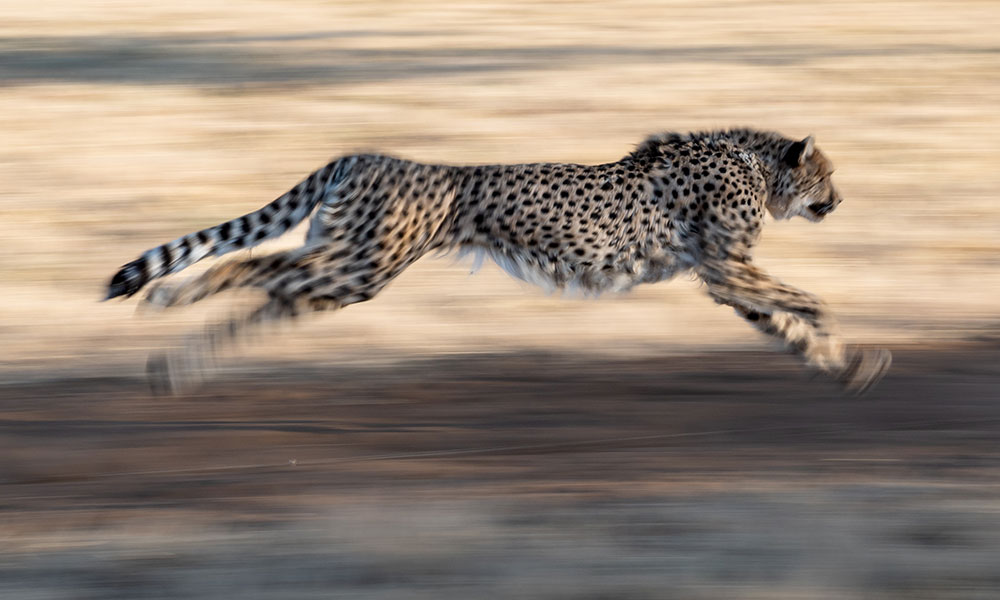
Cheetah Conservation Fund
The Cheetah Conservation Fund (CCF) is the global leader in research and conservation of cheetahs and is dedicated to saving cheetahs in the wild. CCF has created a set of integrated conservation programs based on its research to address threats to the cheetah and its ecosystem. Founded in 1990, CCF is an international non-profit organization headquartered in Namibia with a field base in Somaliland. CCF is the longest running cheetah conservation organization. For more information about CCF’s work and how you can help protect cheetahs in the wild please visit www.cheetah.org.
Ethiopia Wildlife Conservation Authority
Vision and Mission Statement. To develop and conserve scientifically Ethiopia’s wildlife resources and protected areas through active participation of community and other stakeholders, to bring ecological, economic, and social benefits for Ethiopians as well as the global community and pass them to the next generation as a heritage.
Media Contacts:
For media inquiries, please contact:
Prof. Laurie Marker, [email protected] +264 811247887
Dr. Bruce Brewer, [email protected]
More photos available upon request
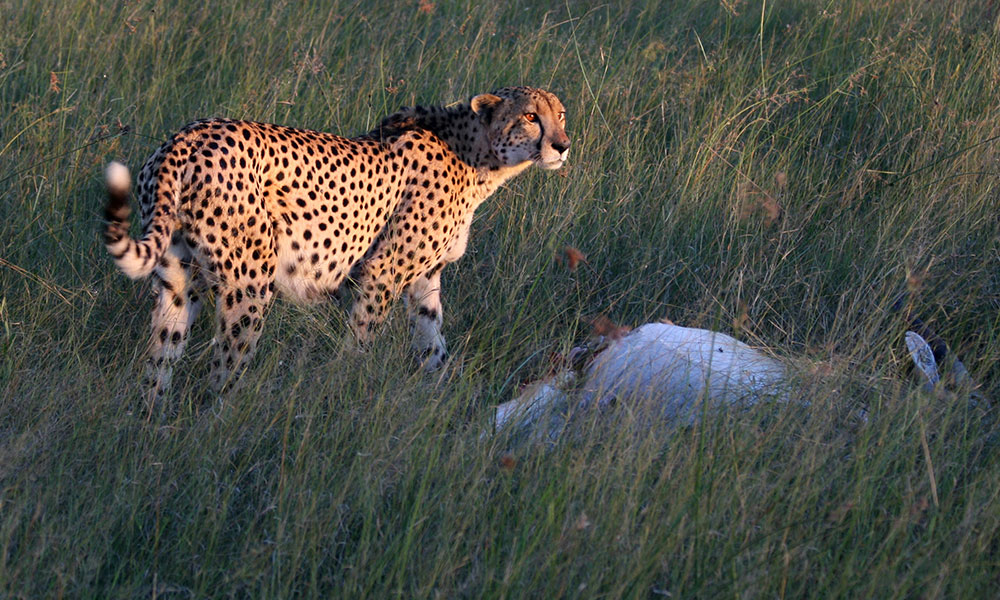
The Challenges Faced by Cheetahs
Habitat and Human Interaction
Human-driven landscape transformations for agriculture and infrastructure often encroach on cheetah habitats. This leads to reduced spaces for cheetahs and their prey, demanding innovative solutions for sustainable development that consider the needs of both humans and wildlife.
Human-Cheetah Coexistence
Promoting coexistence in areas where cheetah habitats intersect with livestock lands is crucial. Education and community engagement are key to mitigating conflicts and implementing non-lethal methods to protect livestock.
Impact of Climate Change
Climate change significantly threatens the delicate, arid ecosystems crucial for cheetah survival. Variations in weather patterns disrupt the availability of water and food resources for both cheetahs and their prey. Particularly in dryland ecosystems, where climate change exacerbates land degradation and alters rainfall patterns, cheetahs and other species face heightened risks. Effective climate action is imperative for their survival.
Threats of Poaching and Limited Genetic Diversity
Poaching and the illegal wildlife trade pose severe threats to cheetah populations. The CCF and its partners advocate for stronger enforcement of wildlife laws and international cooperation. The limited genetic diversity among cheetahs makes them less adaptable to environmental and anthropogenic threats including climate change, highlighting the importance of continued genetic research and conservation efforts in maintaining healthy populations.
Related Reading

